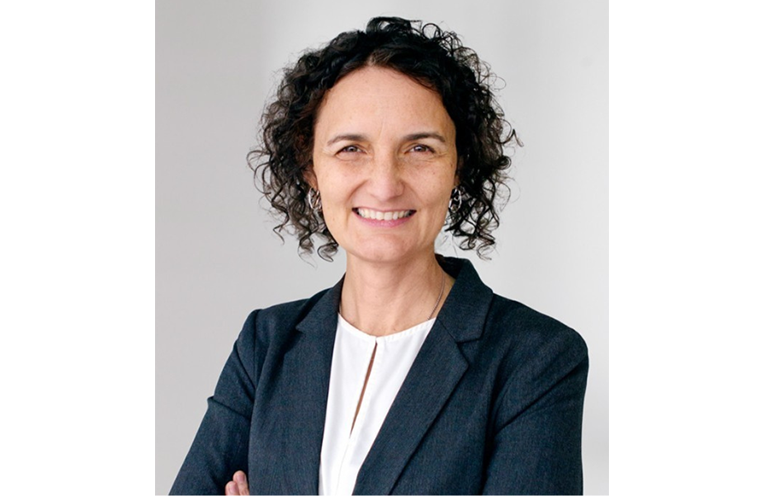
REPRESENTATIVES of the offshore wind industry and the nation’s energy sector are urging Port Stephens residents to actively engage with ongoing consultation on the Hunter offshore wind zone, citing immense economic benefits for the region if projects can be advanced in an environmentally conscious way.
A large contingent of Port Stephens residents have expressed frustration at the perceived inadequacy of the Federal Government’s initial 65-day consultation period prior to the declaration of the zone last July, however government and the offshore wind sector say opportunities for more detailed feedback will be ongoing.
 Advertise with News of The Area today.
Advertise with News of The Area today.It’s worth it for your business.
Message us.
Phone us – (02) 4981 8882.
Email us – media@newsofthearea.com.au
The Hunter zone has attracted eight applications for feasibility licences from global energy developers interested in pursuing an offshore wind project off the Newcastle/Port Stephens coast.
Satya Tanner, the CEO of Danish renewable energy consultancy LAUTEC, said once these feasibility licences are awarded, the community will be engaged once more for feedback by the developers themselves.
“No decisions have been made on offshore wind in the Hunter area,” Ms Tanner said.
“Community engagement will be ongoing for approximately the next five to seven years.
“It is a great opportunity for the community to get involved in these conversations once developers are selected from the larger pool who applied for feasibility licences.
“The wider community has a really important part to play in the decision making.
“It is about a conversation.”
Ms Tanner said offshore wind developers were aware that environmental concerns were “a red button issue” with the ability to halt a project if standards aren’t met.
Noting that the wind industry in Europe had its roots in the oil crisis of the 1970s, Ms Tanner said the development of renewable energy projects began as a “quest for self sufficiency, cheaper electricity and ultimately care for the environment”.
“Developers are used to working with these environmental issues.
“They want to work with these issues in a sensitive way.
“Many of them pride themselves on having biodiversity as a key outcome and goal of building an offshore wind farm.”
Following the awarding of feasibility licences, expected to be in mid-2024, developers will be required to engage with residents and specific interest groups over the details of their projects.
“When it is time to engage, projects will be looking for the community associations to talk to about these issues.
“For example, to understand the needs of the fishermen, so as to create a design solution that is best for all parties.
“When those conversations start, which probably won’t be for another year or so, that is the opportunity for communities to say: ‘Here are the environmental and biodiversity outcomes I want to see’.”
Dani Alexander, the Chief Executive Officer of the University of NSW’s Energy Institute, said the best energy and infrastructure project outcomes are achieved when communities are actively involved in the decision making process.
“In the energy space, when we have seen these larger deployments, whether it be generation infrastructure or transmission network infrastructure, it is critical to engage the community in a way that works for them.
“We have seen examples where that has been quite successful, where communities have been engaged throughout the process and the value has been shown to those communities.
“When that is possible, I think you get better outcomes.”
In an area like Port Stephens, where opposition to offshore wind has been fierce, Ms Alexander said meaningful engagement was particularly important.
“Community engagement is a really great thing.
“Sometimes there is contention in that but really we want the community to be engaged in the renewable energy transition so it works best for everyone.
“We want to be able to address concerns and shape the project in a way that shares value with the community it is based in.”
Both Tanner and Alexander agree that important lessons can be learned from the European experience of offshore wind.
“An important thing to remember about any of these large-scale infrastructure projects is that they take time,” said Ms Tanner.
“The technology that we see in Europe right now is not the technology we are going to see in seven to ten years when these things might finally arrive in the Hunter.
“By the time we actually get these (offshore) wind farms in Australia, assuming that becomes feasible and environmentally acceptable and all these other things that need to be determined first, Europe will have had another five to ten years of making floating wind farms and figuring out the lessons we need to bring to the project.”
With politics infiltrating and distorting the energy generation discussion across the country in recent months, Ms Alexander said it was vital to remember why the nation is attempting a renewables transition.
“If we don’t successfully achieve this transition to renewable energy, and we continue to burn the amount of fossil fuels we are burning now, the effects of climate change on the environment will be disastrous.
“I don’t think that is an overestimate.
“That is backed by science.
“It is really important to keep that in mind.
“Not to say we need to rush anything or circumvent any approvals or environmental approvals that need to be done, but we really are in a race here against the disastrous effects of climate change.”
Ms Alexander said the sector was in consensus that the pace of the transition needed to urgently increase if Australia is to meet its 2030 target of 82 percent renewable energy generation.
She said the key was building a strong ‘portfolio’ of generation options.
“When we are talking about lots of different types of generation in the renewable energy future, we are trying to get a good portfolio that covers the demand that we have for electricity.
“How do we get the right portfolio of generation that covers the demand at the lowest cost to us, the users of the electricity?”
One of the main arguments against offshore wind development is the cost.
The CSIRO estimates that offshore wind will cost between about $85 and $170 per megawatt-hour of output in 2030, compared with as low as about $45 for onshore wind.
Despite the higher cost at the present time, Ms Alexander said offshore wind presented an attractive opportunity due to its “high capacity factor”.
“The capacity factor that you get with an offshore wind project is much higher than you would get with an onshore wind project.
“Of course it depends where these utility scale generators are, but let’s say it is twice as reliable as an onshore wind project as a rule of thumb.
“That being said, you also have to consider the cost, because while we have a lot of experience putting wind turbines on the ground, putting them offshore costs a fair bit more.
“So we have to account for that cost.”
On top of a race against climate change, Ms Alexander said Australia was in a race to secure economic opportunities resulting from the global renewables transition.
“If we can reach high levels of utility scale generation we will be able to export renewable energy through hydrogen derivatives, or maybe develop new green energy manufacturing sectors that can also benefit communities.
“There is a race there at a global level because a lot of countries around the world are doing the exact same thing.
“They also see that economic opportunity.”
Ms Tanner agrees, saying Australia “has to get ready for green exports”, highlighting specific opportunities for the Hunter region.
“Fossil fuels are on the way down.
“If we don’t re-pivot towards green exports, the Newcastle area knows what it feels like to go through an economic downturn.
“Offshore wind presents the opportunity for green metals and big industrial centres to keep things going.
“Our challenge is, how do we do that in a way that is sensitive to the environment.
“(Think of) the economic devastation that could happen to Newcastle again if it does not take this opportunity.”
LAUTEC is not consulting on any proposed projects in the Hunter offshore wind zone.
By Doug CONNOR

